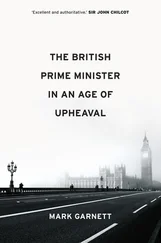The ‘Red Paper on Scotland’ was proposed by Brown as twenty individual essays bound in a slim 180-page volume. Among those invited to contribute were journalists including Tom Nairn, the playwright John McGrath, lecturer in politics John Foster, and two MPs, Jim Sillars and Robin Cook. After eighteen essays had been commissioned, Brown decided his idea was too good to waste. At parties, meetings and in pubs, he invited eighteen other contributions about Scotland’s economy and politics, devolution, the ownership of the country’s land and oil. ‘We’ll have to increase the price from £1.20 to £1.80,’ his flatmate John Forsythe, who was responsible for the publication through the Edinburgh University board, announced. ‘Or could we reduce the number of commissions?’ ‘No,’ replied Brown, ‘and it’s got to be £1.20.’
Unwilling to offend any contributors, he fled to the Meadow Bar to meet Owen Dudley Edwards, his genial tutor. ‘A great bubbly baby,’ was how Dudley Edwards described Brown. ‘One of the sweetest people I know, with a wonderful smile. He knows how to say “Thank you,” and his body language is reproachful if someone declines his request.’ ‘All right,’ Brown announced to Forsythe on his return from the pub. ‘£1.80, but no reduction in the contributions.’ The book’s print was reduced to the minuscule size of a Biblical dictionary’s footnotes, but it was still a success, heading the Scottish bestseller list for two weeks, although few readers can have ploughed through all the tiny script.
In microscopic print, Brown’s well-written introduction, ‘The Socialist Challenge’, criticised the puerile debate indulged in by the country’s politicians, who ignored ‘Scotland’s real problems – our economy and unacceptable level of unemployment, chronic inequalities of wealth and power and inadequate social services’. He offered a rigid solution to the contradiction of managing a capitalist economy while providing the requirements of society, rejecting ‘incentives and local entrepreneurship’, and supporting state planning to orchestrate a national economic revival. He advocated more nationalisation of Britain’s industry, a planned economy and the destruction of the ruling classes. Scottish socialists, he wrote, could not support independence, but should control more of their own lives. Because capitalism had failed, and the private ownership of industry was hindering ‘the further unfolding of the social forces of production’, Brown’s cure was neo-Marxism. Young Labour activists were now hailing Brown as a celebrity. His dramatic appearance and good oratory, enhanced by his immersion in the history and tradition of Scottish Labour, won admirers for his vision of ‘Ethical Socialism’. He could have been destroyed by his early success, but his upbringing reined in any temptation to boast. Privately, he nevertheless hoped that his achievement would ease the path to a nomination for a safe parliamentary seat.
Securing that nomination depended upon a successful apprenticeship. The party recognised Brown’s ability but wanted evidence of more than a commitment to the community and worship of the Bible, Burns and Keir Hardie. To prove his understanding of liberating working people, he was required to intone the religious code of the Scottish Labour movement – ‘socialism’ and ‘social justice’ – with suitable references to the fundamental morality established during the Scottish movement’s history. By 1976 he had established those ideological credentials, regurgitating endless facts to prove that Harold Wilson’s government and its technological revolution would create thousands of new businessmen and enterprises, revolutionising the nation’s wealth. As a party loyalist he qualified for nomination; but among many of Labour’s older generation his image grated. While the party faithful admired the impassioned man, some griped that he was too fast, too clever, and too interested in courting popularity. The picture of a disorganised twenty-three-year-old, wearing a dirty Burberry coat, carrying a plastic bag stuffed with newspaper clippings, pamphlets and notes, flitting between speeches and committee meetings, invariably late because he had forgotten his watch, hardly appealed to working-class stalwarts. They joked that while he held the plastic bag under his arm, the information seeped into Brown’s brain by osmosis through a sensor in his armpit.
Occasionally Brown returned to Marchmont Road close to tears. At political meetings he was shouted down by critics angry that he had acknowledged the SNP, a ghost the Labour Party preferred to ignore. The policies pursued by Harold Wilson’s Labour government antagonised many in Scotland, and Brown was among the casualties, blamed for deviation from true socialism. Some members of the Scottish Executive, especially Jimmy Allison, the party’s organiser, treated him roughly. In 1974 the party had opposed devolution, but subsequently, after receiving a report from the ‘Devolution Committee’ chaired by Brown, it supported partial home rule. The disagreements excited anger. ‘ The older peoplehated him,’ Henry Drucker, a writer and friend, recalled. John Forsythe listened to his long-haired friend’s lament that the representatives of the working class criticised him as soft, self-indulgent and a dilettante. Brown was frustrated that those he consulted for advice were not as clever as himself, and could not offer better insights into Labour’s problems in Scotland. His family life had not equipped him to deal with calculated ruthlessness. Any achievement would have to be the result of unglamorous hard graft.
Eventually his perseverance was rewarded. In 1976 he was nominated as the prospective candidate for Edinburgh South, a Conservative seat. Considering the growing antagonism towards the Labour government his election to the Commons was doubtful, but the breakthrough was critical. After a good speech in favour of devolution at the Scottish party’s conference in 1977 Brown was elected to Labour’s Scottish Executive. Full of excitement, he telephoned Donald Dewar, a solicitor and an MP since 1966 with whom he watched football matches, to share his excitement. The older politician instinctively replied, ‘I can assure you it will be awful.’ John Smith, the thirty-nine-year-old minister responsible for devolution in Westminster, was more supportive. Brown had been flattered to be invited to Smith’s home shortly after Smith’s appointment as a cabinet minister, and had been surprised to find that Smith was more interested in listening than in talking. Smith, Brown would appreciate, ‘ genuinely believed peoplewere equal’. Like Donald Dewar, John Smith became another ‘friend and mentor’. Brown was content to have established himself close to the party’s possible future leaders.
His election to the party’s executive coincided with the earlier appointment of Helen Liddell, a bus driver’s daughter who would later be known as ‘Stalin’s Granny’, as the Scottish party’s general secretary, and George Robertson as chairman. His encounters with both did not improve his popularity. As BBC Scotland’s economics correspondent, Liddell had a high public profile, and was an attractive face for Labour. Her appointment did not interrupt her frequent appearances on television news. Self-promotion, carped her critics, seemed more important to Liddell than engaging in the grind of party work and leadership. Her supporters countered that her value was in forging good relations with people. That was no consolation for Brown. Generally he did not handle women well, and he particularly lacked affection for Liddell. At executive meetings he was humiliated as she launched criticisms of him, especially of the ‘Red Paper on Scotland’, whose neo-Marxism she regarded as a threat to the party, regularly beginning with the phrase ‘The national leadership says … ’ Those seemingly innocuous words could be fatal to Brown’s ambitions. His energy and politics were creating rivals and occasionally enemies, just as his need for friends and benevolent advisers had become greatest.
Читать дальше












